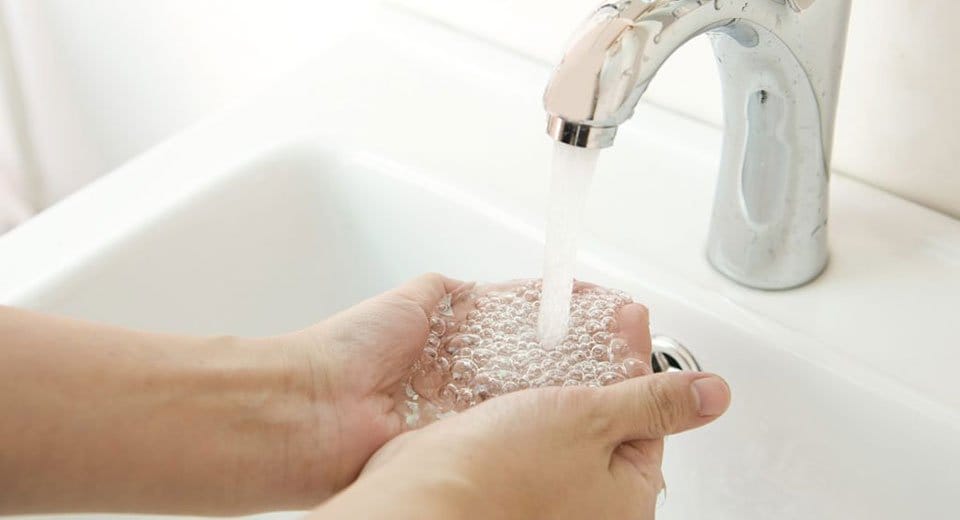Good old soap and water still best for hand washing

Despite advertising claims that antibacterial soaps are the best choice to combat illnesses like flu and the common cold , a new study concludes they are no better than plain soap in fighting germs.
In fact, some antibacterial soaps could actually be more harmful to your health because of one ingredient, triclosan.
“What is not debatable is the value of washing your hands with soap and water,” emphasizes Patricia Phelan, Microbiology Supervisor at Cape Cod Healthcare. “It’s the simplest way to protect yourself from colds, flu, diarrhea, even infectious diseases like hepatitis A and SARS.”
“And when you can’t do that, always carry around a bottle of alcohol wipes or gel rubs like Purell,” she adds.
The latest news involving washing your hands comes from a study published in September in the Journal of Antimicrobial Chemotherapy. It concluded that antibacterial soaps – which represent a billion-dollar industry – did not kill any more bacteria than traditional soap and water for any of the strains – even after washing for 20 seconds, which is the time recommended by the World Health Organization.
Scientists at Korea University compared both traditional soaps and antibacterial soaps on 20 bacteria strains. The tests included having volunteers coat their hands with bacteria before washing so the scientists could measure bacteria levels afterward.
The antibacterials performed no better, unless the solutions were left on hands for nine hours. Of course, for most of us, that is not a reasonable option.
So, what does all this mean?
We asked Cape Cod Healthcare’s Phalen and Microbiologist Kathie Mullin to put the issue in perspective.
- Don’t bother buying antibacterial soaps. “We touch bacteria every day, and we rely on good old fashioned soap and water in our own microbiology lab,” says Mullin.
- If you do purchase antibacterial soap, read the ingredients carefully. If it contains triclosan, do not use it. Studies have increasingly linked triclosan to skin irritation, endocrine disruption and resistance to antibiotics. It also can contaminate water and impact fragile aquatic ecosystems – something to consider living on Cape Cod.
- Do not confuse antibacterial soaps with alcohol- based products like Purell, which are safe and effective – although still not quite up to par with soap and water.
A Michigan State University study two years ago found that only about one in 20 Americans properly wash their hands. That’s just 5 percent of more than 3,700 people the researchers observed in public restrooms throughout the duration of the study. The findings were published in the Journal of Environmental Health.
“Most people will wash their hands after they go to the bathroom, treat a wound, take the garbage out, handle foods like chicken or blow your nose, but not more routinely,” said Phelan.
Here are Phelan’ s and Mullin’s top tips for staying healthy:
- Menus at restaurants are germ and bacteria traps. Always get up after you order your meal and wash your hands.
- When you are traveling on public transportation – especially airplanes – wash your hands after you touch trays, lights, air nozzles and seat back controls.
- Wash your hands after you are on elevators, escalators, stairwells, as well as touching door knobs.
- Wear gloves or wash your hands after filling up at gas stations.
- Carry around wipes or gels while working out at public gyms. Then, wash your hands after you finish exercising.
- You love your pets, but those bacteria they carry are not your best friend. Wash as often as you can after touching any animal.
- Sure, be friendly. But wash after shaking hands.
- Computers and books make you smart. You’ll be even smarter if you wash your hands after you are done with both.
“It’s understandable. We’re all so busy. But these tips likely will keep you healthy, and that will save you a lot more time and discomfort later,” emphasizes Mullin.
